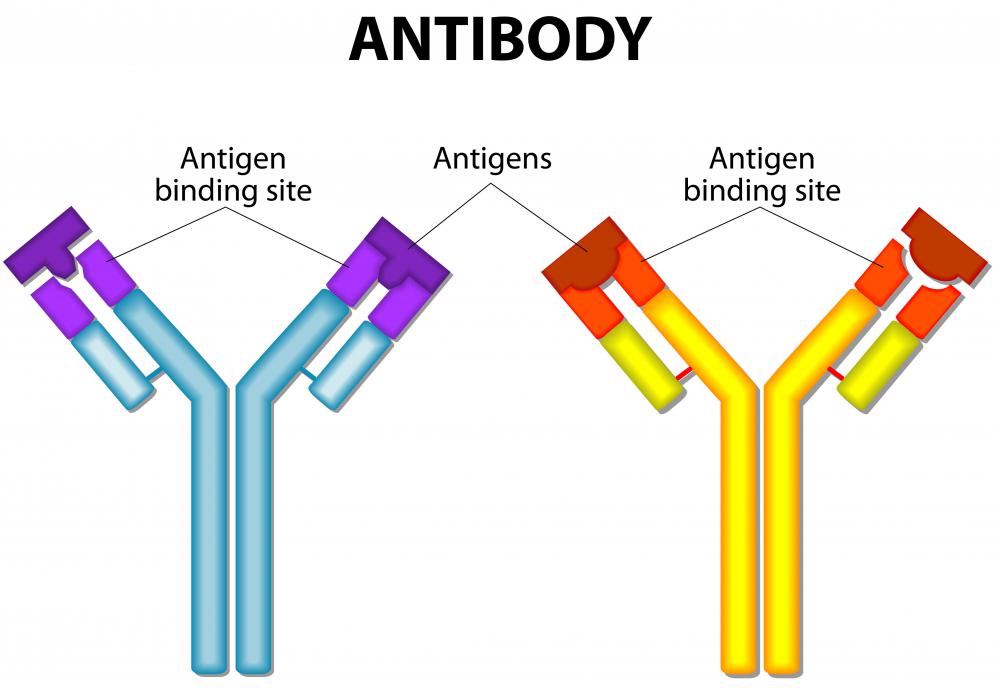At TheHealthBoard, we're committed to delivering accurate, trustworthy information. Our expert-authored content is rigorously fact-checked and sourced from credible authorities. Discover how we uphold the highest standards in providing you with reliable knowledge.
What is a Blocking Antibody?
Antibodies are an important component of the immune system that act against disease-causing organisms. A blocking antibody is a specific type that works by preventing a bacterium or virus from attaching to a host cell. By binding itself to the part of the bacterium or virus that is used to attach to host cells, the blocking antibody makes it difficult or impossible for the invader to harm its host.
An antibody is a protein produced by the immune system in response to a foreign invader, such as bacteria and viruses. These invaders, including any substance that elicits a reaction from the immune system, are called antigens. Several types of cells work together to form the correct antibody to fight a specific antigen. Any antibody, including a blocking antibody, is specific to an antigen, meaning it will only work against that particular antigen.

The first cells to interact with the antigen are called macrophages. A macrophage engulfs an invading bacterium or virus and uses biochemical processes to break the cell into smaller units. Major histocompatibility complex (MHC) proteins bind to antigenic subunits — the parts of the cell that provoke an immune response — and bring them to the surface of the macrophage to be passed along to T cells.

A protein within T cells, called a T cell receptor (TCR), recognizes the MHC proteins produced by the macrophages. The TCR can only recognize antigens that have been bound to an MHC protein. Once the TCR has recognized the antigen, there are several different ways a T cell can act in order to destroy the invading cells. The T cells that help to produce antibodies, called T-helper cells, stimulate B cells to produce the blocking antibody specific to the antigen.
B cells produce antibodies by working in conjunction with the T-helper cells. When a B cell binds to the antigen, it cannot immediately produce the correct antibody. Instead, it first degrades the antigen and presents it to a T-helper cell. The T-helper cell then produces a chemical that stimulates the B cell to produce the antibody specific to that antigen.
In the specific case of a blocking antibody, the antibody does not produce any visible reaction with the antigen. Instead, it prevents anything else from attaching to the antigen. Thus, a blocking antibody can prevent a harmful organism from infecting a host cell, because once the antigen is bound to the antibody it cannot bind to anything else.
AS FEATURED ON:
AS FEATURED ON:












Discuss this Article
Post your comments